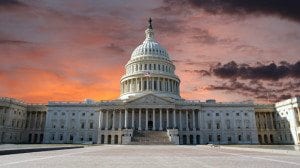
In March, the Supreme Court heard oral arguments in King v. Burwell, the case that will decide whether the language of the Affordable Care Act (ACA) allows only those who purchase health insurance through state-established exchanges—not federal health exchanges—to qualify for federal subsidies. Justices Sonia Sotomayor and Anthony Kennedy suggested that they may be forced to allow the subsidies for federal exchanges because limiting subsidies to state exchanges might unconstitutionally intrude on the federal-state relationship by coercing states into forming their own health-insurance exchanges. This federalism argument, however, is based on speculation leading to flawed legal reasoning. It shouldn’t determine the outcome the case.
The ACA’s statutory language seems to limit federal subsidies to people enrolled “through an Exchange established by the State under section 1311,” the ACA section directing states to establish health exchanges. The statute makes no mention of subsidies for enrollees on the federal exchanges authorized under a different ACA section, 1321. The plaintiffs in the case argue that this is no accident: Congress, they maintain, intended to encourage states to create their own exchanges by offering subsidies only to state-created exchanges.
Justice Sotomayor asked if interpreting the ACA to disallow federal-exchange subsidies would “intrude on the federal-state relationship, because then the states are going to be coerced into establishing their own exchanges.” Justice Kennedy, widely viewed as the Court’s swing vote, amplified the argument, suggesting that under “the standard of constitutional avoidance,” the plaintiffs’ interpretation might be prohibited because it could lead to unconstitutional coercion. “States are being told either create your own exchange, or we’ll send your insurance market into a death spiral,” he said.








